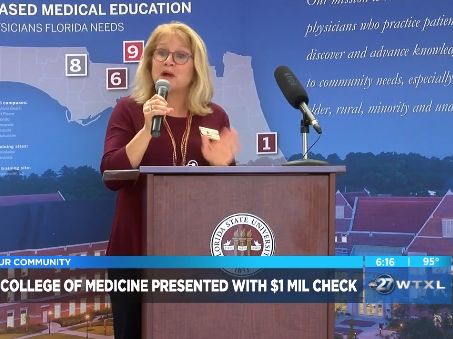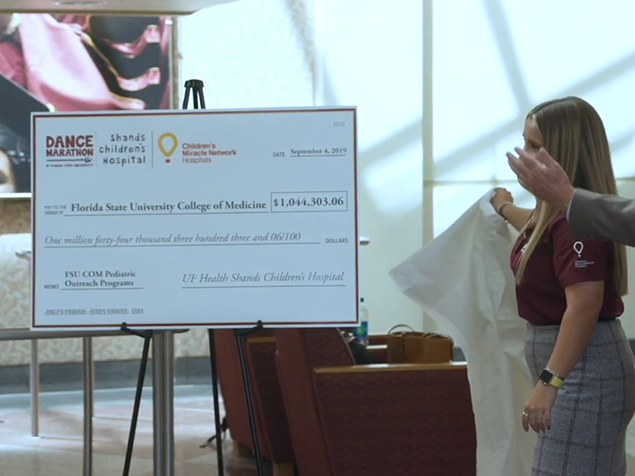Dance Marathon at Florida State University presented the College of Medicine a check for more than $1 million to benefit children throughout Gadsden and Leon counties.
- About Us About Us
- Campuses Campuses
-
Academics
Academics
- Departments
- Degree Programs
- Divisions / Offices
- Residency Programs
-
Centers & Institutes
- Area Health Education Center
- Autism Institute
- Center for Behavioral Health Integration
- Center for Brain Repair
- Center for Child Stress & Health
- Center on Global Health
- Center for Medicine and Public Health
- Center for Rural Health Research & Policy
- Center for Translational Behavioral Science
- Institute for Pediatric Rare Diseases
- Education & Clinical Centers
- Admissions Admissions
-
Research
Research
- Division of Research
- Ph.D. Program
- Quick Links for Medical Research
-
Centers & Institutes
- Area Health Education Center
- Autism Institute
- Center for Behavioral Health Integration
- Center for Brain Repair
- Center for Child Stress & Health
- Center on Global Health
- Center for Innovative Collaboration in Medicine & Law
- Center for Medicine and Public Health
- Center for Rural Health Research & Policy
- Center for Translational Behavioral Science
- Institute for Pediatric Rare Diseases
- Translational Science Laboratory
- NCRT-CE Research Services
- Sponsored Funding Assistance
- Library
- Giving


